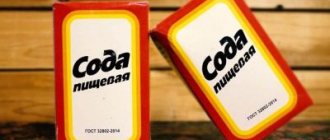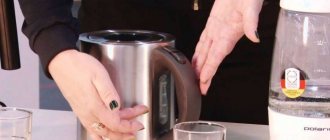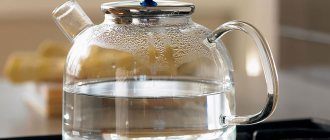The best way to protect yourself from scale is to prevent it from forming. And there is only one way to prevent this – by softening the water. All other methods involve fighting directly with scale, as a result of working with lime water. Softening means bringing the level of mineral salts back to normal.
Only in our article you will find the most complete and most objective analysis of currently existing systems and filters for cleaning and protection against scale, their advantages and critical disadvantages! Happy reading...
Anti-scale filters
The market offers the consumer a really large number of products against thick plaque, but this certainly does not apply to high-quality protection against this negative phenomenon. Anti-scale filters are the only effective weapon against limewater. There are not many of them, but, nevertheless, the consumer has plenty to choose from, including in price categories.
Two factors will help you choose the right filter for purifying water from scale - an analysis of the state of the water, and setting the correct purpose for using the future softening filter. The consumer can try to save money at the stage of checking the water condition, based solely on his own subjective observations. But suspicions will not give exact numbers. They will not fully describe the volume of excess impurities in the water, they will not make it possible to determine what kind of power treatment devices should be installed and, of course, the absence of an analysis stage will not make it possible to identify such specific impurities as a high threshold of iron content or bactericidal water. When the water is already contaminated, but still has external regulatory characteristics.
The second aspect is purpose. Drinking soft water is not required in the entire water supply system in the apartment. Just like drinking quality, technical water is definitely not necessary. And therefore, thin drinking filters are definitely not required to purify all the water in the apartment. To protect your washing machine from scale, you definitely don’t need to install a reverse osmosis device. At a low threshold for exceeding limescale, citric acid may well become a means of protecting against scale for such household equipment. But, as a rule, there is almost no natural soft water in nature. And even on the territory of Russia, few regions can boast of such water, except Leningrad.
At the same time, if you need to save money at the initial stage, then a conventional ion-exchange jug will be sufficient for domestic drinking water production. Although it has replaceable parts, the quality of softening for home use in food is more than enough. This is one of the most successful, high-quality drinking quality softeners.
An electromagnetic softening device will help you obtain soft industrial water without much expense.
Electromagnetic filter
The most convenient and affordable softener for all water in an apartment or house today remains an electromagnetic device. If protection of heating elements from scale is required, then the electromagnet has no equal. It will not only prevent deposits of harmful salts on the surfaces of expensive household appliances, it will also gradually remove all old deposits of this kind.
A fundamental role in this device is played by a good permanent magnet made of rare earth materials. It is able to create a more or less constant magnetic field for many decades. The power of which is maintained by an electrical processor. The operation of such a device can only be disrupted by some kind of demagnetizing device or serious damage to the housing.
The softening process is quite simple. A magnetic field penetrates limewater. Under powerful irradiation, salts undergo changes, becoming needle-shaped balls of very small size. In its new guise, it won’t stick to surfaces much. But the uneven needle-like edges help to gradually loosen the old sediment. And all this happens without human participation. This double effect has become the hallmark and main advantage of Aquashield electromagnetic filters. After all, other devices could not and do not know how to soften water and remove old scale at the same time.
But such a filter is not enough to obtain drinking water, because direct filtration of harmful salts does not occur here. But for systems such as boiler rooms and heating, this option is one of the best and most convenient.
Magnetic filter
A conventional magnetic water converter MPV MWS could become an excellent competitor to an electromagnet. But the number of shortcomings that this device shows cannot make it an industry leader. The magnets must be strictly placed opposite each other and pressed tightly end to end. In addition, the magnetic field undergoes changes in its operation as a result of slight deviations from the norm.
If the flow in a pipe includes several directions, the lines of force become useless. The same thing happens when the temperature rises to 40 degrees and above. Standing water, as well as water with a high flow rate, cannot be softened with such a device. Therefore, magnetic filters can be used in rare cases. In addition, they must be mounted strictly vertically or strictly horizontally. Protecting water heaters from scale using a magnetic filter makes sense only if there is an electrical processor inside that significantly improves the constant operation of such a field.
Polyphosphate anti-scale agent for washing machines and boilers
Problems with scale occur not only among those who use hot and cold water from a centralized water supply system. Often, the use of a gas boiler to heat water also makes adjustments to the lives of consumers. Protecting a gas boiler from scale is not only about softening water, it is also about constantly working with carbon deposits, soot and other delights of an open fire.
Very similar to the operation of ion exchange resin, it softens water and polyphosphate filters. They are a flask filled with polyphosphate, which easily reacts with lime water and easily releases its polyphosphate salts. And such a reaction does not require temperature or any stimulus. The polyphosphate coating on the ions of calcium-magnesium salts prevents them from being deposited on the surfaces of the equipment; they are simply washed out of the equipment.
But the reserves of polyphosphate in the softener flask are washed out very quickly, so the polyphosphate backfill has to be constantly replenished. The advantage is that polyphosphate itself is an inexpensive and accessible substance. It's easy to buy and won't break your budget. The untwistable filter flask allows you to quickly replace the softening substance. To protect a washing machine from scale or a gas boiler in an apartment, such a device is quite affordable and convenient, especially if the budget does not yet allow you to buy a mainline version of an electromagnetic cleaner.
Effective folk remedies
If the iron does not have a self-cleaning function, you can use simple folk methods. The main condition for their use is that the device must be heated to maximum temperature and then disconnected from the network.
Citric acid for cleaning iron
Recommendations:
- It is most often recommended to use citric acid. You need to dissolve 25 g in a glass of water, pour the solution into a container. Heat to maximum temperature and unplug. Press the steam release button.
- You can also use mineral water to clean internal surfaces.
- To clean the soleplate and the steam vents on the outside, you need to make a paste of baking soda and dishwashing liquid.
- Regular table vinegar also dissolves scale. You need to wet the cloth and wipe the sole.
Important! Vinegar should not be poured inside the device; it is only used to clean the soleplate from the outside.
What other anti-scale devices are there for boilers, boilers and water heaters?
To protect water heaters from scale, two more types of softeners can be used. These are main-line ion-exchange units and reverse osmosis units. The latter belong to the category of fine filters. They are expensive, and it is impractical to use them for the production of non-potable water.
Ion exchange devices work like polyphosphates, only the lime salts remain inside the ion exchange resin cartridge. They change places with sodium salts, which enter the water, making it also useful. But for household appliances, for example, if the boiler does not heat hot water, this quality is not necessary, especially since cartridges with lean resin will have to be constantly replaced. And although resin is inexpensive, with frequent replacements it can amount to quite a substantial amount.
Aquaphor
This softener manufacturing company has been operating on the market for several years and has established itself as a reliable company. Its filters are considered one of the best in Russia and are worthy competition to foreign analogues. Aquaphor protection against scale for heating elements of boilers and boilers, both comprehensive and individual. This company produces both sink filters and jug filters. Specializes in many models, from faucet attachments to complex water treatment systems. The quality of the devices is evidenced by the very fact of such a long existence in the top of the best companies producing cleaning equipment.
Stop scale
The Stoscale softener works on the principle of polyphosphate devices. This is also a flask with a filling, only the filler in this device is anion exchanger. It helps to clean the Ariston boiler from scale and remove some iron salts. It also helps reduce the amount of chlorine compounds in water. Stop scale is a cheap option for a convenient water softener with slight excesses of lime salts in the water. Doesn't wash out as quickly as others. One flask is enough for 90 thousand liters of water. It is also a safe connection for humans.
VyborExperta.ru recommends
To remove deposits in coffee machines, washing machines and dishwashers, it is better to use tablets. The powder format will be optimal for electric kettles, irons and other small household appliances. Liquids should be considered as the golden mean. They can be used for all types of household and kitchen appliances.
The editors of VyborExpert.ru highlight the following nominees:
- Eonite is an inexpensive but effective powder for cleaning washing machines;
- Unicum – highly concentrated composition, has antibacterial properties;
- Topperr is a German iron treatment product that is easy to use.
Manufacturers recommend regular preventive cleaning, and when choosing a special descaling agent, take into account the type of household appliance.
Conditions for using water heaters
Instantaneous water heaters are used when there is power that can provide peak water consumption. The advantages of these water heaters include their compactness; there are practically no disadvantages, except for one thing - the installed power of the instantaneous water heater must correspond to the consumption of the maximum peak hour.
For a peak flow rate of 12 m3/h, an instantaneous water heater (plate heat exchanger, etc.) with a thermal power of 0.6 Gcal/h, or 698 kW, is required. This condition is not always feasible: when reconstructing an existing facility, where new conditions require additional DHW capacity, or on a new building in an already populated area, where heating (or electrical) networks do not have the reserve to connect additional capacities. Then the introduction of additional hot water supply capacity entails a complete reconstruction of the supply heating networks. It is for these conditions that DHW heating units based on capacitive water heaters are suitable.
Capacitive water heaters, with a lower installed power, accumulate the required amount of water in an internal thermally insulated tank, ensuring peak flow. This is their main advantage - to accumulate heat in the form of hot water at a relatively low hourly power. Since at most facilities peak water consumption is not constant, but cyclical, additional limits on heat supply for hot water supply are not required. In 3–4 hours, at a low thermal power, you can prepare and accumulate hot water for a full maximum peak. It is clear that the hot water accumulator must have a volume that provides maximum peak consumption.
This has a small drawback - a storage water heater requires more space in the heating unit than a flow-through water heater. Therefore, industrial storage water heaters are usually manufactured in the form of a cylinder with a diameter of 1–2 m and a height of 1.5–3 m, so that they occupy less floor space. You can apply almost all the principles of energy conservation using storage water heaters:
- accumulate hot water of the required volume using less power than specified by the project;
- minimize accumulation losses due to effective thermal insulation;
- If there are combined heaters built into the tank, use “waste” heat.
The design and operating principle of these water heaters are almost the same regardless of the manufacturer (Fig. 1). This is an internal tank, protected from heat loss by effective thermal insulation (polyurethane foam, polyurethane, mineral wool or any thermally resistant thermal insulation), in which hot water accumulates. Water heaters are built into the tank.
Rice. 1. Sectional view of a storage water heater
Depending on the type of energy supplied, fuel burners, built-in water or steam heat exchangers, and electric tubular heaters are used to heat water. Many manufacturers offer a combination of these heaters: one is used as the main heating source, the other as a backup. To use recycled heat (from air conditioners, etc.) in DHW circuits, heat exchangers are built into storage water heaters or external plate heat exchangers are used.











